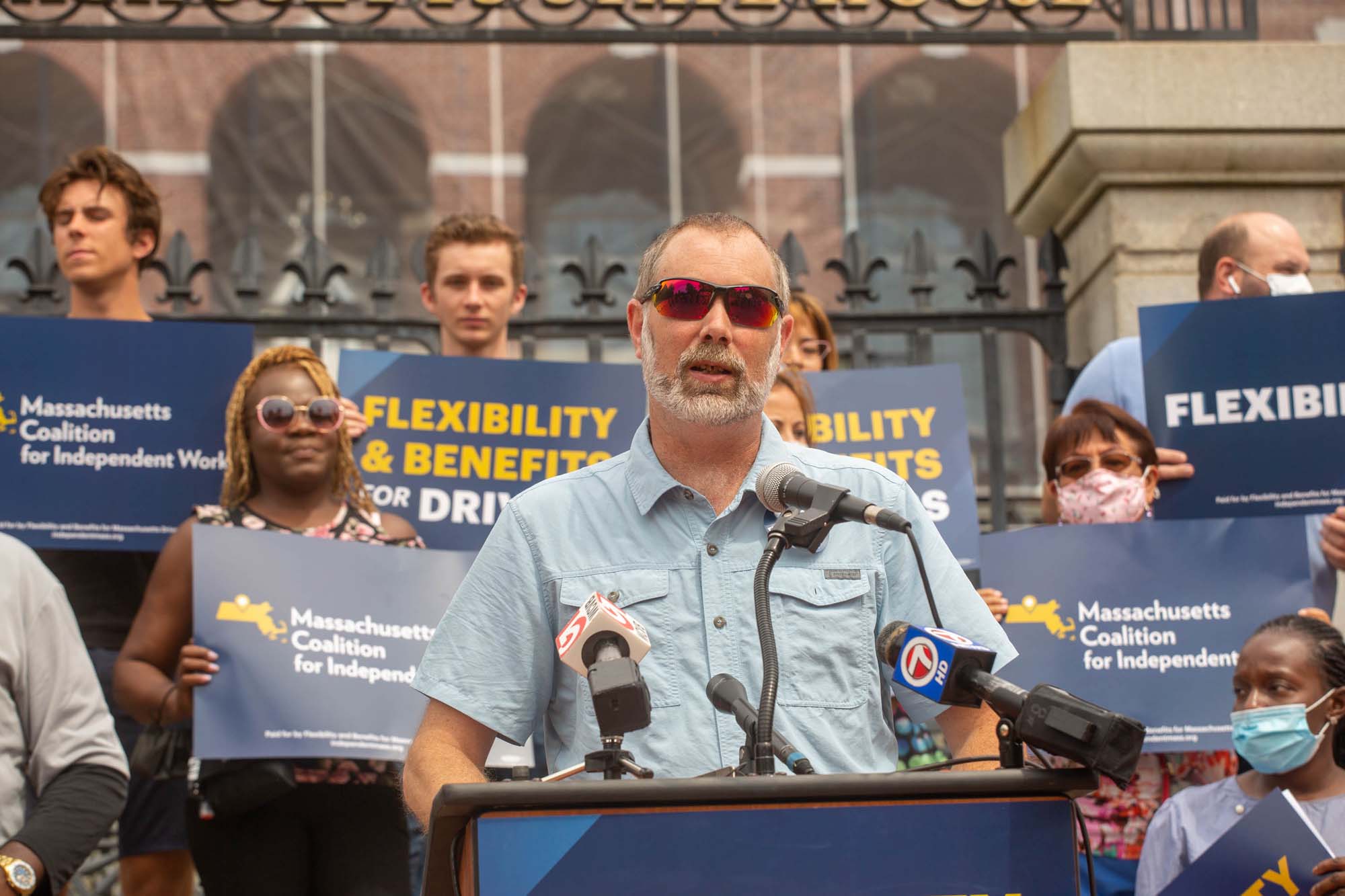More than 3,200 drivers sign petition to the Joint Committee on Financial Services in advance of hearing
CONTACT: Conor Yunits, 857-276-8479, cyunits@solomonmccown.com
BOSTON, MA – October 6, 2021 – Without continued flexibility to set their own schedules and the independence to work whenever and wherever they want, Massachusetts rideshare and delivery drivers would have their lives upended. That was the overwhelming message legislators heard today during a Joint Committee on Financial Services virtual hearing for H. 1234, which would protect the flexibility of drivers while ensuring they can access new benefits and protections.
“I can’t have my flexibility taken away,” said Raya Denny from Springfield. “A lot of people here that have talked today — legislators, representatives — they have not gotten our opinions as drivers. A lot of them are not in our shoes to know what’s best for us. They feel like they have the need to rescue us. That’s like you telling me how to do my job and when to do it. I don’t tell you how to do your job.”
“We’re disappointed that so many elected officials are taking a position against drivers without hearing what we have to say today,” said Marcus Cole, a rideshare driver from Boston, in a pre-hearing press conference. “We will be delivering a petition signed by 3,200 drivers that asks the legislature to stand with us and deliver the flexibility and benefits we’ve been asking for. That’s 3,200 drivers that the groups who spoke out this morning didn’t hear from before taking a position and that’s too bad.”
In advance of the hearing, more than 3,200 drivers signed a petition asking committee members to advance H. 1234, asking legislators to stand with them to “ensure workers’ continued independence and access to work, while also facilitating workers’ access to important new benefits funded by rideshare and delivery companies.”
“I know of no other job where you can move to a completely different state, open an app, and continue working as normal, while providing communities with an essential service,” said Travis Jones, who shops with Instacart. “It would be completely devastating if Massachusetts became the only state in the country that forced drivers to become employees, and especially for me personally.”
“If I had a job that put me in one place, I don’t think I’d be able to work at all,” said Prossie Namanda of Waltham. “As a single mother, I support flexibility.”
“With this being the only work that I’m able to do as I prioritize my health each day, the proposed legislation with new benefits for drivers would be a great starting point for myself,” said Pam Bennett, of Springfield, who drives with DoorDash. “I could continue driving when I feel up to it, but enjoy new protections and benefits that better fit my job and lifestyle.”
Monica Cannon-Grant, the founder of Violence in Boston and a former rideshare driver herself, spoke on the realities of the economy and the importance of flexibility.
“Take a look around right now, there are plenty of jobs available for people who want to be employees,” Cannon-Grant said. “The fact is, old-school employment simply does not work for many people. If we are truly interested in correcting Massachusetts’ racist past policies and uplifting people, we must give them the opportunity and the flexibility that others have received.”
Jack Kinney, a rideshare driver from California, where the recently passed Prop 22 has secured flexibility plus benefits for drivers, capped his testimony off by relaying the lived experience of California drivers under this model.
“Massachusetts has an incredible opportunity here to listen to drivers and support them in what they want and need. House Bill 1234 would do exactly that. It allows drivers to remain independent while also granting them new benefits. As a driver, that’s a dream come true,” Kinney told the Committee.
“There was a poll last week that came out that shows how drivers in California feel about Proposition 22,” Kinney said. “87 percent of drivers support Prop 22, 63 percent responding “strongly” in support. 75 percent of California drivers reported that Prop 22 increased their pay. 84 percent — 84 percent of drivers said they would recommend other states pass laws that protect flexibility while allowing new benefits and protections. That is a huge number.”
Drivers were supported at the hearing by a diverse group of influential voices in Massachusetts, who spoke on the importance of delivery services during the pandemic.
